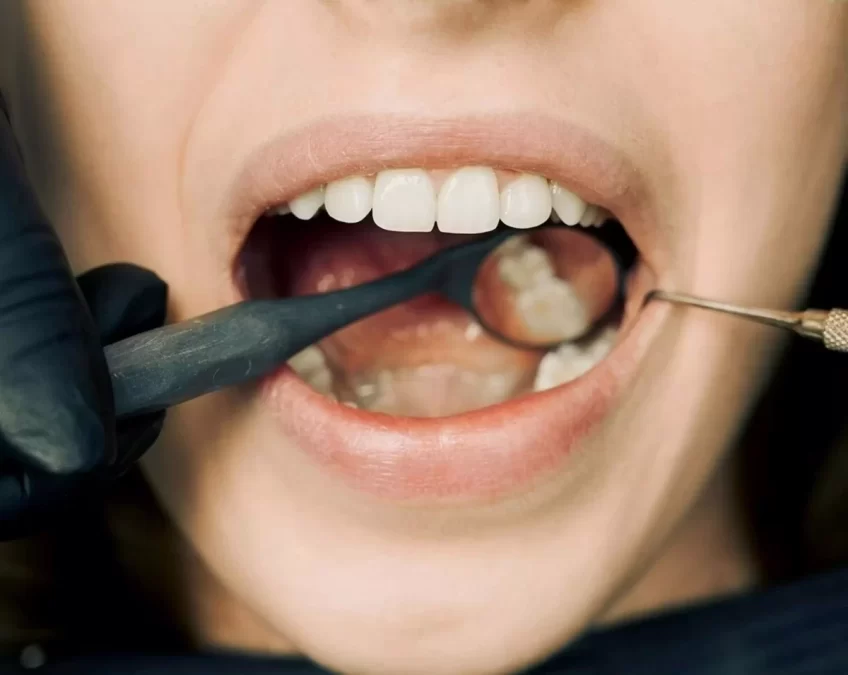Teeth Sensitivity: Causes, Prevention, and Treatment Options

Teeth sensitivity, characterised by a sudden, sharp pain in response to stimuli such as hot, cold, sweet, or acidic foods and beverages, is a common dental concern affecting individuals worldwide. This discomfort can range from mild to severe and may signify underlying dental issues. Understanding the causes, preventive measures, and treatment options can help mitigate this discomfort and improve your oral health. If you’re seeking professional advice or treatment, Dr. Bobby Chhoker offers expert dental services tailored to your needs.
Understanding Teeth Sensitivity
Teeth sensitivity, or dentin hypersensitivity, occurs when the tooth’s protective layers – the enamel over the crown or cementum over the root – wear down, exposing the dentin. This layer contains microscopic tubules leading to the dental nerves. When exposed to certain triggers, these nerves can produce a sharp pain.
Common Causes
- Enamel Erosion: Caused by acidic foods and drinks, overzealous brushing, or teeth grinding.
- Gum Recession: Often a result of periodontal disease, leading to exposure of the sensitive root surface.
- Dental Procedures: Sensitivity may temporarily increase after procedures such as fillings, crowns, or teeth whitening.
- Cracked Teeth or Fillings: Cracks can expose the dentin or dental pulp, leading to sensitivity.
- Tooth Decay: Cavities near the gum line can also expose sensitive areas.
Prevention Strategies
Preventing teeth sensitivity largely involves adopting good oral hygiene practices and being mindful of habits that could contribute to enamel erosion or gum recession:
- Use a Soft-Bristled Toothbrush: Brush gently to avoid damaging the enamel or gums.
- Choose Toothpaste for Sensitive Teeth: These formulations can help block the discomfort transmitted by the nerves.
- Limit Acidic Foods and Drinks: Minimise exposure to substances that can erode enamel.
- Wear a Night Guard: If you grind your teeth, consider getting a custom-fitted night guard to protect against enamel erosion.
- Maintain Good Oral Hygiene: Regular brushing, flossing, and dental check-ups can prevent conditions leading to sensitivity.
Treatment Options
Treatment for teeth sensitivity varies depending on the underlying cause. Some options include:
- Desensitising Toothpaste: Regular use can gradually reduce sensitivity.
- Fluoride Gel: Applied in-office, it strengthens tooth enamel and reduces pain.
- Dental Restorations: Fillings, crowns, or bonding to repair damaged teeth or cover exposed roots.
- Gum Grafts: For severe gum recession exposing the root, a small amount of gum tissue can be taken from elsewhere in your mouth and attached to the affected site.
- Root Canal: Considered when sensitivity is severe and other treatments are ineffective, this procedure treats problems in the tooth’s soft core (dental pulp).
The Role of Regular Dental Check-ups
Regular dental visits are crucial for detecting and addressing factors contributing to sensitivity early on. Professional cleanings can remove plaque and tartar build-up, a potential cause of gum disease and subsequent recession. Your dentist can also identify and recommend treatments for any early signs of enamel erosion or tooth decay.
Contact Dr. Bobby Chhoker for Expert Dental Care
Living with teeth sensitivity can significantly impact your quality of life, making it uncomfortable to enjoy your favorite foods or even breathe in cold air. However, understanding the causes and available treatments is the first step toward finding relief. With the right care, you can reduce or eliminate sensitivity and improve your oral health.
If you’re struggling with teeth sensitivity, don’t hesitate to reach out for professional help. We specialise in providing comprehensive dental care, including the diagnosis and treatment of dentin hypersensitivity. With a focus on personalised care and state-of-the-art treatments, Dr. Chhoker and his team are dedicated to ensuring you can enjoy a comfortable, healthy smile.
Ready to say goodbye to teeth sensitivity? Contact Dr. Bobby Chhoker today to schedule your appointment today!
